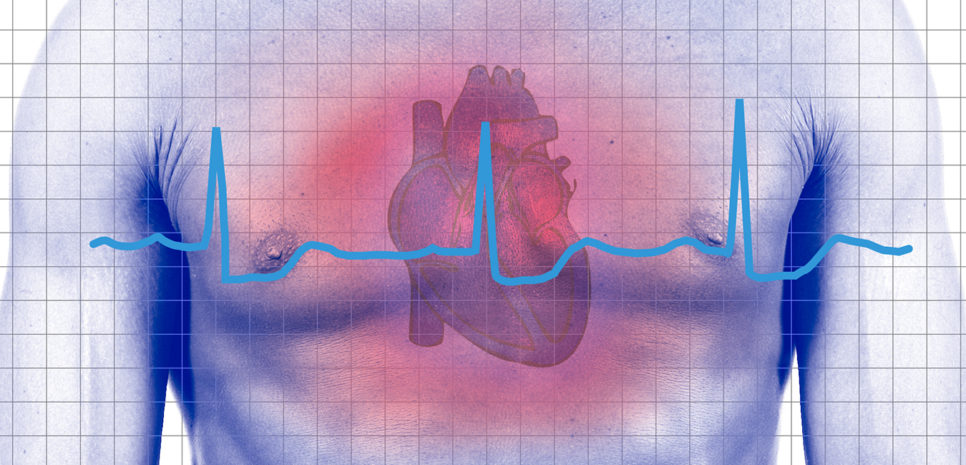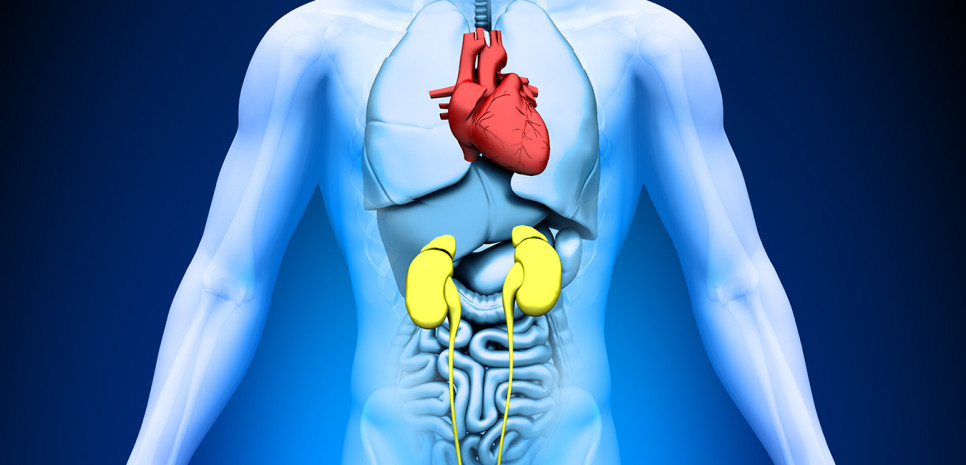You may have heard that drinking alcoholic beverages like red wine can help your heart. That may be true, but it all depends on how much you drink. More and more research shows that heavy drinking is harmful for your heart. Studies have linked it to risks like high blood pressure, heart attack, stroke, and abnormal heart rhythms or beats. …
A New Eating Peril: The Social-Business Diet
When it comes to our eating habits, it doesn’t get much grimmer than the Western diet. High in fat, red and processed meats, salt, and sugar and low in healthful plant foods, it’s the predominant eating pattern in the U.S.—and increasingly in other parts of the world—and solidly linked to heart disease, diabetes, cancer, and other chronic conditions. But recently …
A Hidden Heart Risk for African Americans
It’s an unfortunate fact: Heart disease is not an equal opportunity disease. Nearly half of all African American adults have some form of cardiovascular disease, compared with just a third of all white adults in the U.S. And African Americans are 30 percent more likely to die from heart disease than non-Hispanic whites. Yet, until recently, little research has probed …
Silent Heart Attacks
Silent and Deadly: The Growing Danger of Symptomless Heart Attacks A heart attack can be a vital wake-up call for people with cardiovascular disease—a chance to embrace radical changes to improve heart health, and if medical help is sought quickly, even avoid heart damage. But what if the heart attack goes undetected because there are no symptoms? According to alarming …
4 Things I Wish I’d Known Before My Heart Attack: A Doctor’s Story
Doug Dunning, MD thought he was healthy – until he suffered a heart attack on June 15, 2015, at age 56. He is now convinced that it might have been prevented with the right knowledge, testing, and optimal medical care. “This experience has changed how I practice medicine, making me a more attentive advocate for my patients’ cardiovascular wellness – and my …
3 New Tests to Predict Heart Attack and Stroke Risk
Three new blood tests can help identify hidden risk for a heart attack or stroke in seemingly healthy patients—before symptoms strike. The new tests, now available through Cleveland HeartLab (CHL), check levels of certain biomarkers that have been linked to cardiovascular danger in peer-reviewed studies. Cardiovascular disease (CVD) is the leading killer of men and women, accounting for one in …
TMAO Testing: A New Way To Assess Heart Attack And Stroke Risk
A new blood test that measures levels of TMAO (trimethylamine-N-oxide) — a metabolite derived from gut bacteria — can powerfully predict future risk for heart attack, stroke, and death in patients who appear otherwise healthy, according to pioneering Cleveland Clinic research. The new test — now available through Cleveland HeartLab — measures blood levels of TMAO, a compound produced by …
The Diet that Helps Prevent Heart Attack, Stroke and Inflammation
Even if you’re not overweight, cutting calories could lower inflammation by nearly 50 percent, improve other major risk factors for heart attack and stroke, including blood pressure and cholesterol, and even add years to your life, suggests a new National Institute on Aging (NIA) study. The findings, which were published in Journal of Gerontology: Medical Science, “are quite intriguing,” said …
What 90% of Women Don’t Know About Their Stroke Risks
Only about one in ten women can correctly identify female-specific risks for stroke, according to a national survey released by Ohio State University (OSU) Wexner Medical Center. That’s concerning, given that stroke is the third leading cause of death in American women and the top cause of long-term disability, reports the National Stroke Foundation. “What women don’t know about stroke …
Novel Biomarker Test for Cardiovascular Disease Risk Now Available from Cleveland HeartLab
A novel biomarker called ADMA/SDMA is an independent predictor of heart attack risk and may also identify patients with diabetes, pre-diabetes or kidney disease, according to recent peer-reviewed studies. The ADMA/SDMA biomarker blood test, now available through Cleveland HeartLab (CHL), measures levels of asymmetric dimethylarginine (ADMA) and symmetric dimethylarginine (SDMA). Elevated levels of these biomarkers can signal damage to the …
Triglycerides May Predict Risk For Repeat Heart Attacks
Survivors of heart attacks and other acute coronary events are up to 61 percent more likely to suffer repeat events if they have high fasting triglycerides, according to new research published in the Journal of the American College of Cardiology (JACC). The investigators examined outcomes in two studies of patients with acute coronary syndrome (ACS): sudden blockage of blood flow …
Telomere Testing May Predict Lifespan and Health Risks
Telomere Testing May Predict Health Risks Years in Advance The length of telomeres — protective caps at the end of chromosomes often compared to plastic tips on shoelaces — could be an important predictor of increased danger for a range of disorders, from cancer to cardiovascular disease and type 2 diabetes. What’s more, telomere testing may identify patients at risk …
What a Practice Analysis May Reveal About the Health of Your Practice
Every day, about 2,150 Americans die from heart disease, stroke and other forms of cardiovascular disease (CVD)–one every 40 seconds, according to “Heart Disease and Stroke Statistics–2015 Update: A Report from the American Heart Association.” CVD remains the leading cause of death in the United States, claiming more lives than all forms of cancer combined. These are frightening statistics. Cleveland …
4 Delightful Cardiovascular Benefits of Positive Emotions
Embracing positive emotions–from optimism and gratitude to love, laughter and other joyful experiences–has been shown to dramatically reduce heart attack and stroke risk, and could even add years to your life, new research suggests. In fact, the most optimistic people are twice as likely to have ideal cardiovascular health, compared to those who are pessimistic, according to a study of …
How Effective Are Anti-Inflammatory Diets for Lowering Heart Attack Risk?
In advice that many American have taken to heart, Hippocrates wrote, “Let food be thy medicine.” In fact, diets to reduce chronic inflammation–which is linked to disorders ranging from heart attacks and strokes to type 2 diabetes, Alzheimer’s disease and even cancer–have become a health craze. However, there’s debate about which eating plan–and foods–offers the greatest cardiovascular and anti-inflammatory benefits. …















